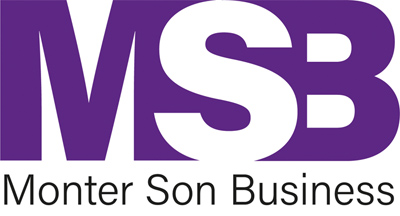75 years of diplomatic ties.
A strategic meeting between two presidents. And a French-Indonesian couple diving into the cultural and political meaning behind it all.
Welcome to the very first episode of the Indo Prancis Podcast.
Listen to the full episode below.
France–Indonesia relations: A new era?
In May 2025, Indonesian President Prabowo Subianto met French President Emmanuel Macron in Jakarta.
The timing was symbolic: it marked 75 years of bilateral relations between the two countries, a partnership built on diplomacy, defense, economy, and culture.
But what does this meeting really mean?
What concrete impact can it have on daily life, business, and the future of Indonesia?
To answer these questions in a fresh, accessible, and bilingual way, we launched the Indo Prancis Podcast.
2 presidents, one conversation… And two citizens react
In this first episode, we (Rémy from France & Savira from Indonesia) discuss the political summit, but from our personal perspective as a multicultural couple living in Jakarta.
And let’s be honest: we didn’t expect to talk about cookies, fighter jets, AI models and traffic in the same conversation… but we did.
What’s at stake? Themes we covered in the episode
1. Nuclear energy: A missed opportunity for Indonesia?
While France generates over 70 percent of its electricity from nuclear power (with more than 50 plants nationwide), Indonesia has zero operational nuclear reactors.
Prabowo reportedly expressed interest in French expertise, including EDF and Framatome, as a way to reduce carbon emissions and diversify Indonesia’s energy mix.
Meanwhile, Jakarta struggles with dangerous air pollution.
In 2023, it ranked among the top 10 most polluted cities globally according to IQAir.
Could nuclear be a long-term solution?
2. Defense deals: Rafales, submarines, and strategic neutrality
Indonesia recently signed a 7.5 billion euro deal with France to acquire:
- 42 Rafale fighter jets
- Scorpène-class submarines
- Advanced radar and surveillance systems
The goal: strengthen Indonesia’s presence in the Indo-Pacific without directly aligning with either China or the United States.
A delicate, strategic dance, one that’s shaping Asia’s geopolitical future.
3. Digital infrastructure & AI cooperation
In February 2025, Indonesia participated in the Paris AI Action Summit, signaling stronger collaboration with Europe on artificial intelligence, smart cities, and cybersecurity.
France is now home to Mistral AI, a rising alternative to OpenAI, focused on European and Arabic-language datasets. For Indonesia, this raises the question: Should we rely on Western AI… or build our own?
In the podcast, we discuss how far behind (or not) Indonesia is in AI literacy, and what can be done.
4. Cultural diplomacy: From croissants to cinema
France’s Institut Français is already present in Jakarta, Bandung, and Surabaya, but the Macron-Prabowo meeting went further, announcing:
- Co-production agreements for films
- Support for Indonesian cinema via CNC (National Centre for Cinema in France)
- More visa facilitation for students and artists
We highlight the Indonesian animation film “Jumbo,” featured at Cannes Film Festival 2025. A potential global breakthrough?
5. The curious case of QRIS: Indonesia’s payment revolution
One unexpected topic?
Indonesia’s new digital payment system, QRIS, which is slowly replacing Visa and Mastercard in daily transactions.
The U.S. reportedly voiced concern over this shift, which could signal a move toward financial sovereignty in the region.
In the podcast, we explore what it’s like to live in a “post-card” society, and how geopolitical tensions can show up in your wallet.
What did we eat?
Each episode ends on a sweet note, literally.
This week: banana–coconut–chocolate cookies baked by Savira using French butter.
A perfect symbol of our cultural blend.
Find more creations on Instagram: Sapaserrie
Listen now
What’s next?
We’ll be releasing new episodes every week, diving into real stories of cultural clash, love, tech, and identity between Indonesia and France.
Subscribe, comment, share, and let us know what topic we should cover next.
